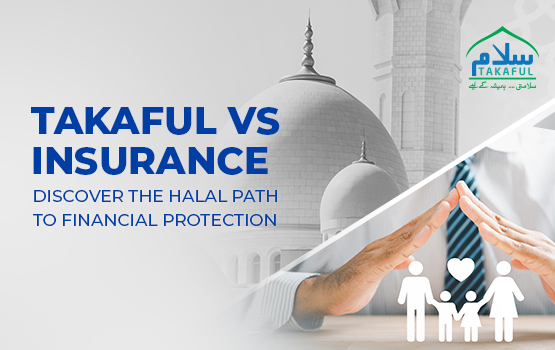
Why Choose Takaful? : Discover the Halal Path to Financial Protection
How Takaful is Different from Insurance and Why is it Halal
The financial services industry offers various risk management solutions, including traditional insurance and Takaful. While both serve similar purposes, they differ fundamentally in principles and operations.
Understanding Takaful
Takaful, derived from the Arabic word "kafalah" (guaranteeing each other), is an Islamic alternative to conventional insurance. It operates on mutual assistance, solidarity, and shared responsibility. Participants pool their contributions into a common fund used to support members who suffer losses. Any surplus at the end of the term is distributed back to the participants, enhancing the community-centric ethos of Takaful.
Key Differences Between Takaful (Islamic Insurance) and Conventional Insurance
- Risk Sharing vs. Risk Transfer
Takaful: Risk is shared among all participants. Pooled contributions compensate any member who incurs a loss, emphasizing collective responsibility.
Insurance: Risk is transferred from the policyholder to the insurer in exchange for a premium. The insurer compensates covered losses, creating a contractual relationship.
- Profit Motive
Takaful: Structured as a non-profit arrangement. Surplus after claims and expenses is returned to participants or kept for future claims, focusing on mutual benefit.
Insurance: For-profit entities. Premiums are invested to generate returns for shareholders, and any surplus is kept by the company.
- Investment Practices
Takaful: Investments adhere strictly to Shariah (Islamic law), avoiding interest (Riba), gambling (Maysir), and prohibited (Haram) industries such as alcohol, pork, and gambling.
Insurance: Premiums are invested in various financial instruments, including those that may not comply with Shariah principles, like interest-bearing bonds.
- Contractual Framework
Takaful: Based on Tabarru (donation), where participants donate contributions to help others. The relationship is cooperative and not commercial.
Insurance: Commercial contracts based on the exchange of premiums for coverage, with defined financial obligations between the insurer and the insured.
Takaful is Halal because it adheres to Shariah principles, avoiding Riba (interest), Gharar (excessive uncertainty), and Maysir (gambling). It ensures ethical investments in Shariah-compliant ventures, reflecting Islamic values of social justice and responsibility. The mutual cooperation in Takaful, where resources are pooled for the common good, aligns with the Islamic principle of helping one another, fostering a sense of community and brotherhood.
Additionally, Takaful operates as a non-profit model, with any surplus distributed back to participants rather than being retained for profit. This reinforces its ethical stance and contrasts with the profit-driven nature of conventional insurance. By understanding these differences, Muslims can make informed choices that align with their religious values and beliefs.




